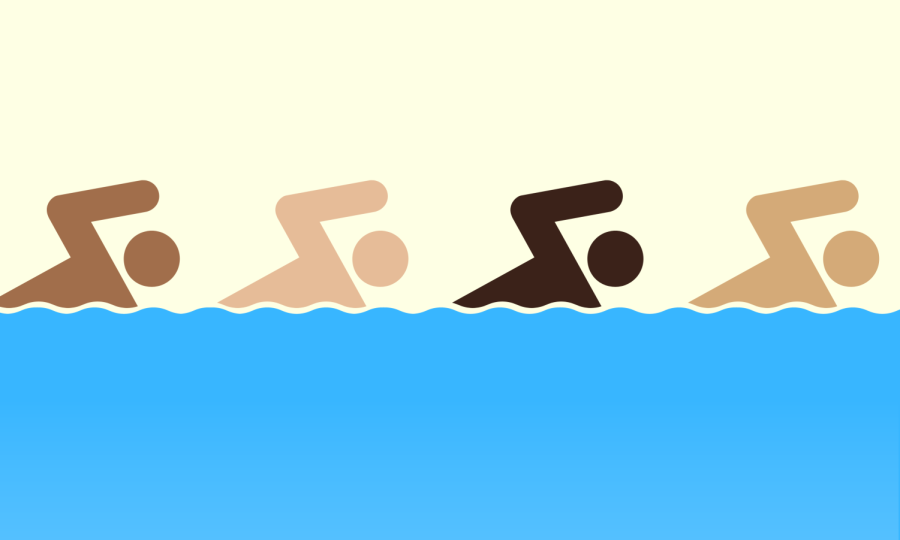Northwestern study links intergenerational swimming abilities and lack of resources for minority groups
Pediatric emergency doctor Michelle Macy and her team are working on developing culturally-tailored swimming programs to mitigate racial disparities in swimming ability.
January 23, 2023
Feinberg professor of pediatrics Dr. Michelle Macy saw cultural disparities in swimming long before she became a doctor.
Growing up as a swimmer, she was aware of the class and racial divisions on the pool deck. She saw the pattern again as a pediatric emergency physician, when she observed that children of color disproportionately experienced drowning incidents.
“There’s definitely a lot of segregation and when it comes to swimming, especially here in Chicago — there’s scarcity in places that offer swimming lessons,” Macy said.
Macy’s research team collected information from each of the 77 community areas in Chicago with a Voices of Child Health in Chicago Parent Panel survey. The data confirmed that both minority parents and children are less likely to feel comfortable with swimming than white people.
Recently, the team was able to gain additional grant funding because of the pilot data gathered from the survey. Macy hopes to use this money to develop a swim exposure program in Evanston and continue evaluating the strategies’ efficacy.
According to the study, children were generally more confident in water than their parents. But parent comfort and children’s competence were the lowest among Black and Asian families and highest in white families.
Medical education coordinator and second-generation immigrant Neshwa Rajeh (SPS ‘22) — as well as the study’s first author — said her parents didn’t prioritize swimming as an essential skill.
She added that her personal experiences helped her understand the nuances and importance of the issue.
Both Rajeh and Macy said they focused on developing “culturally tailored” swimming programs.
“I try to focus on … actionable spots where we can continue to try to improve the health, wellbeing and safety of kids,” Macy said.
High school teacher Andy Miner met Macy through her children’s own swimming programs. He worked at Camp Kuumba, a free summer program for Black male students in grades 3-8 and directed an hour of pool time to teach water safety and competency daily.
Miner came into the summer with a rough curriculum but quickly realized he had overestimated his students’ prior knowledge — some of them had never been in the water.
“As soon as some of the kids gained a little bit of confidence and a little bit of just like, ‘Hey, I can do this. I belong here,’ then the gains happened lightning fast,” Miner said.
Miner hopes to build on the progress he saw during the summer. He is still teaching around 20 kids every weekend. Currently, he and Macy are working together to write a curriculum to teach water safety to children with little to no experience.
Macy hopes that new funding will allow them to continue their work and make the water a safe place for everyone.
Email: [email protected]
Related Stories:
— Study led by Northwestern professor quantifies experiences with global water insecurity
— Feinberg physicians release paper on lack of diversity in OB-GYN research












